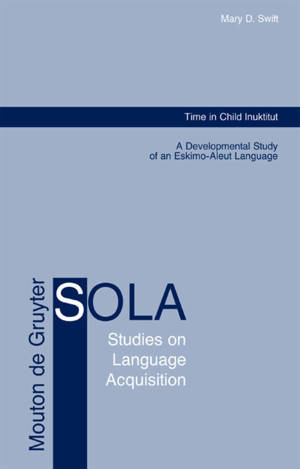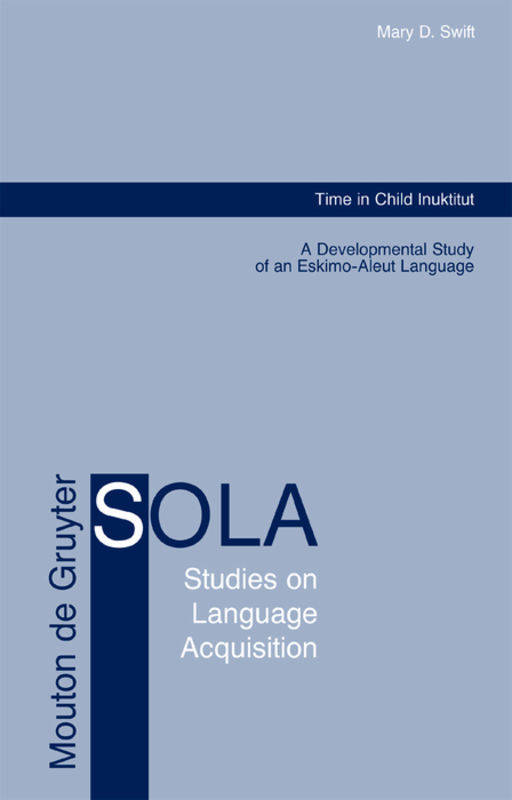
- Retrait gratuit dans votre magasin Club
- 7.000.000 titres dans notre catalogue
- Payer en toute sécurité
- Toujours un magasin près de chez vous
- Retrait gratuit dans votre magasin Club
- 7.000.0000 titres dans notre catalogue
- Payer en toute sécurité
- Toujours un magasin près de chez vous
Description
This book presents a study of the development of time reference in young children acquiring Inuktitut as a first language. The first such study of an Eskimo-Aleut language, its account of children's development of time reference in a system that is fundamentally different from those found in languages previously studied makes a unique contribution to the literature on the acquisition of tense and aspect. Drawing on longitudinal spontaneous speech data from eight Inuit children between 2 and 3-and-a-half years old, this study analyzes the temporal structures, their meanings and context of use in children's communicative interactions with siblings, peers and caretakers during the early stages of language development. The comprehensive study of previously unexplored temporal phenomena and its unprecedented findings makes this book an important resource for researchers, teachers and students of child language development, especially the development of time reference. In addition, the documentation of the Inuktitut temporal system, especially as used in conversational speech, will be of interest to researchers of time reference.
Spécifications
Parties prenantes
- Auteur(s) :
- Editeur:
Contenu
- Nombre de pages :
- 327
- Langue:
- Anglais
- Collection :
- Tome:
- n° 24
Caractéristiques
- EAN:
- 9783110181203
- Date de parution :
- 26-05-04
- Format:
- Livre relié
- Format numérique:
- Genaaid
- Dimensions :
- 156 mm x 234 mm
- Poids :
- 680 g

Les avis
Nous publions uniquement les avis qui respectent les conditions requises. Consultez nos conditions pour les avis.






